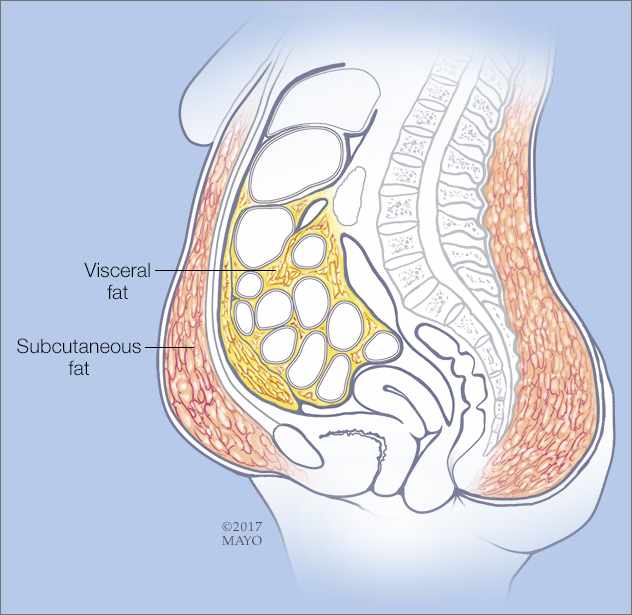
What does your waistline say about your health? Why is belly fat more common after menopause? Does it pose a dangerous health risk? As you get older, you might notice that maintaining your usual weight becomes more difficult. Many women gain weight around the menopause transition. Research shows that belly fat also carries serious health risks.
Menopause weight gain isn't inevitable, however. You can reverse course by paying attention to healthy-eating habits and leading an active lifestyle.
What causes menopause weight gain?
The hormonal changes of menopause might make you more likely to gain weight around your abdomen than around your hips and thighs. But hormonal changes alone don't necessarily cause menopause weight gain. Instead, the weight gain is usually related to aging, as well as lifestyle and genetic factors.
Genetic factors also might play a role in menopause weight gain. If your parents or other close relatives carry extra weight around the abdomen, you're likely to do the same.

Other factors, such as a lack of exercise, unhealthy eating and a lack of sleep, might contribute to menopause weight gain. When people don't get enough sleep, they tend to snack more and consume more calories.
What's behind belly fat?
However, aging also plays a role. Muscle mass might diminish slightly with age, while fat increases. Loss of muscle mass also decreases the rate at which your body uses calories, which can make it more challenging to maintain a healthy weight.
Many women also notice an increase in belly fat as they get older, likely due to a decreasing estrogen level. Estrogen appears to influence where fat is distributed in the body.
The tendency to gain or carry weight around the waist — and have an apple rather than a pear shape — might have a genetic component, as well.
Why is belly fat more than skin deep?
The trouble with belly fat is that it's not limited to the extra layer of padding just below the skin (subcutaneous fat). It also includes visceral fat, which lies deep inside your abdomen, surrounding your internal organs.
Although subcutaneous fat poses cosmetic concerns, visceral fat is linked with far more dangerous health problems, including:
- Heart disease
- Type 2 diabetes
- High blood pressure
- Abnormal cholesterol
- Breathing problems
Research also has associated belly fat with an increased risk of premature death — regardless of overall weight. Some studies have found that, even when women were considered a normal weight based on standard body mass index, measurements, a large waistline increased the risk of dying of cardiovascular disease.
Related articles:
- Learn more about menopause research
- Women’s Wellness: Blood pressure, estrogen and menopause
- Weight gain and menopause: Mayo Clinic Radio Health Minute
- Mayo Clinic Minute: Women and midlife weight gain
- Belly fat in women: Taking — and keeping — it off








